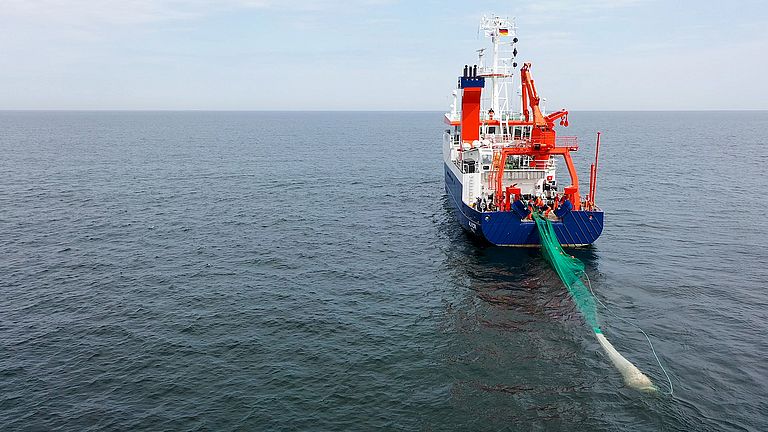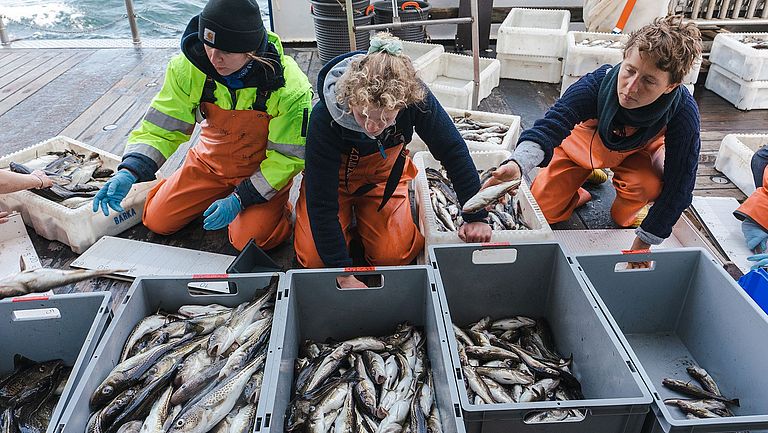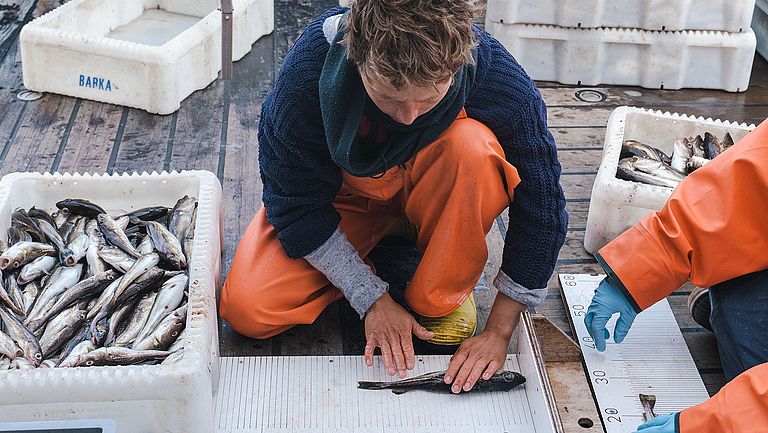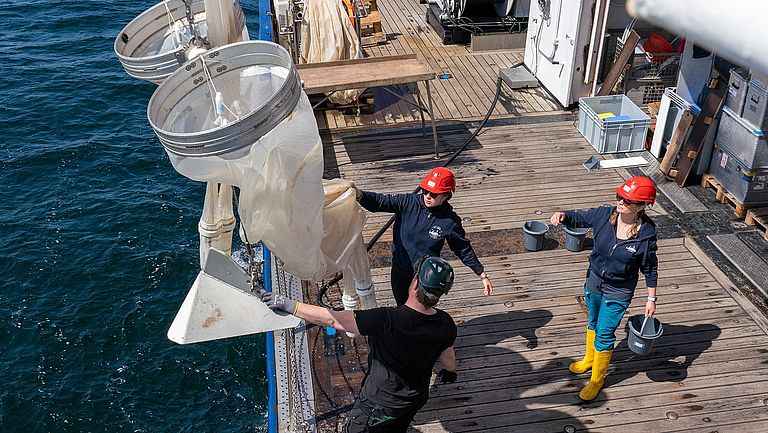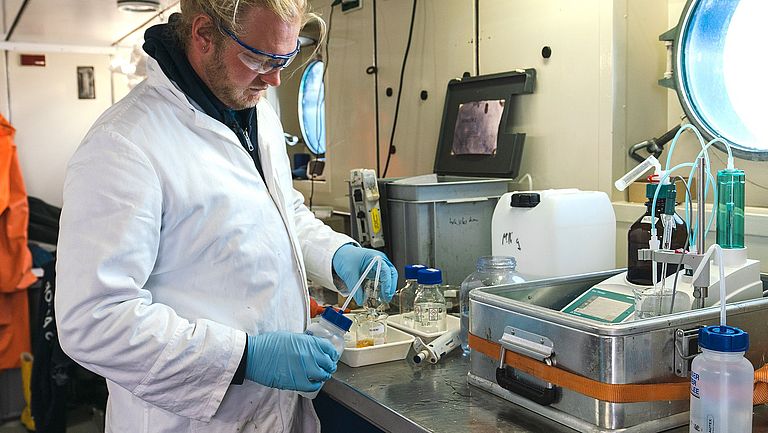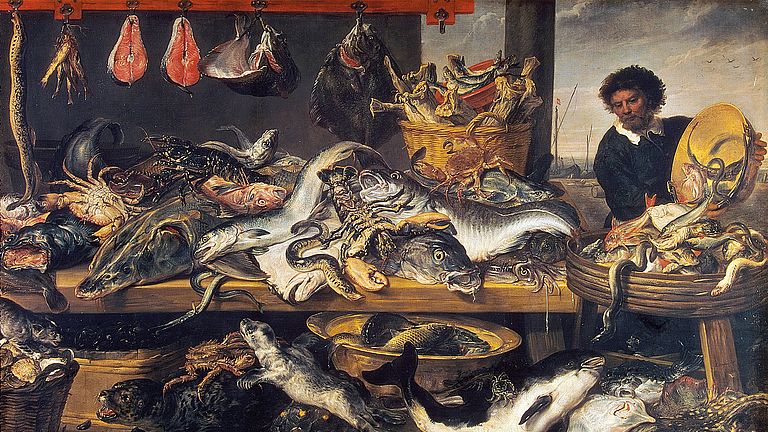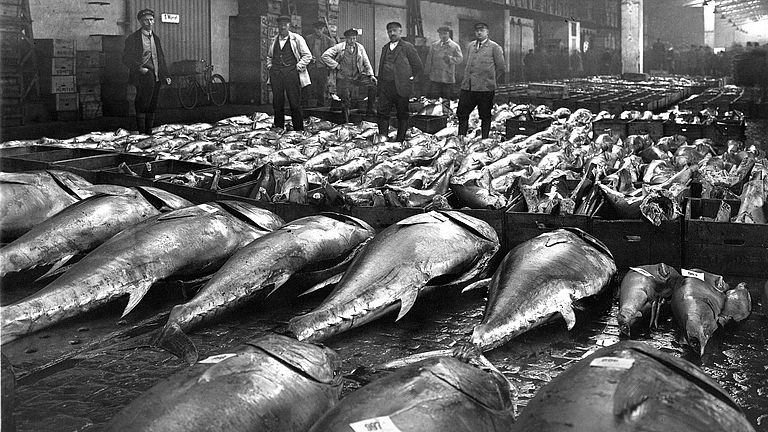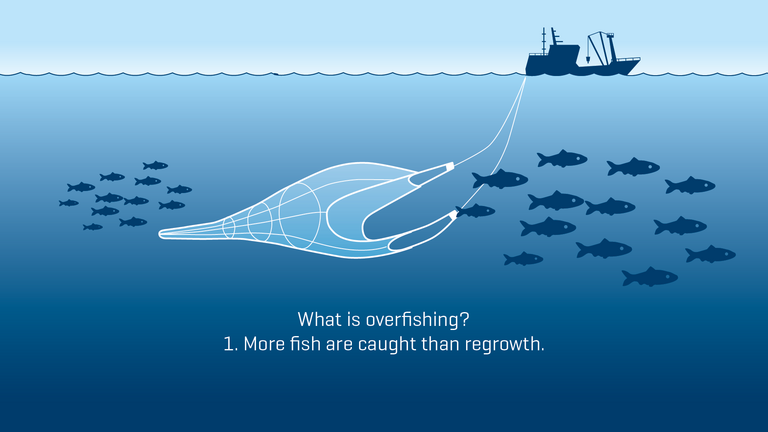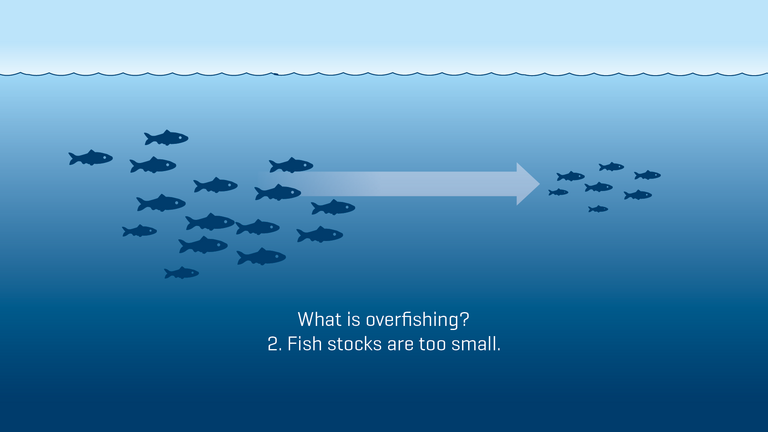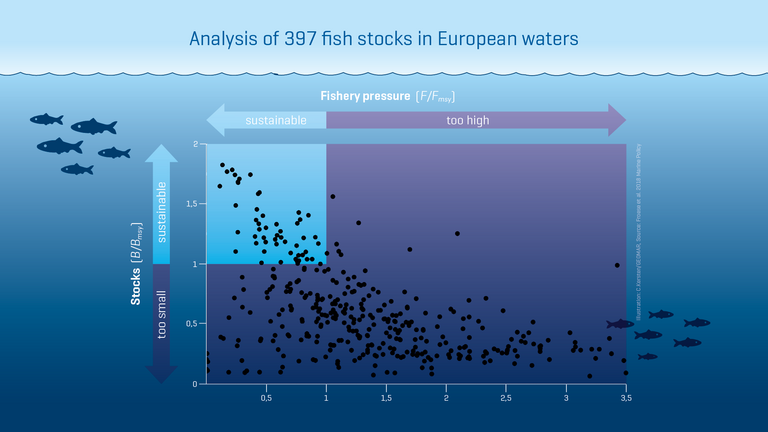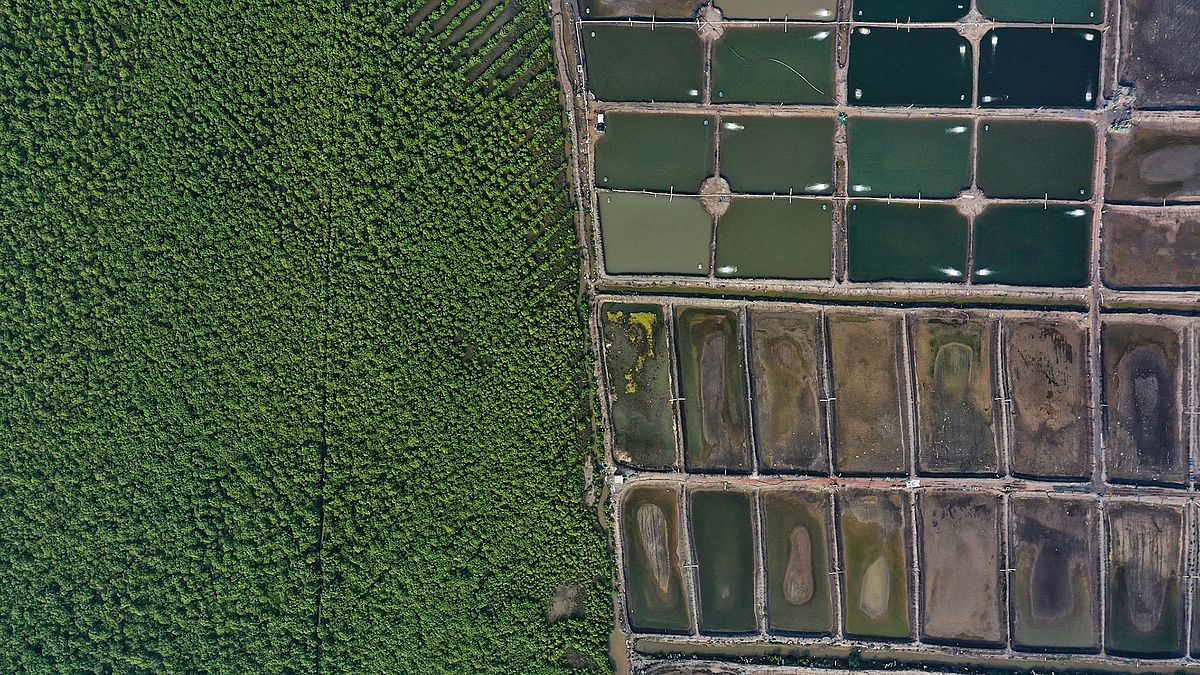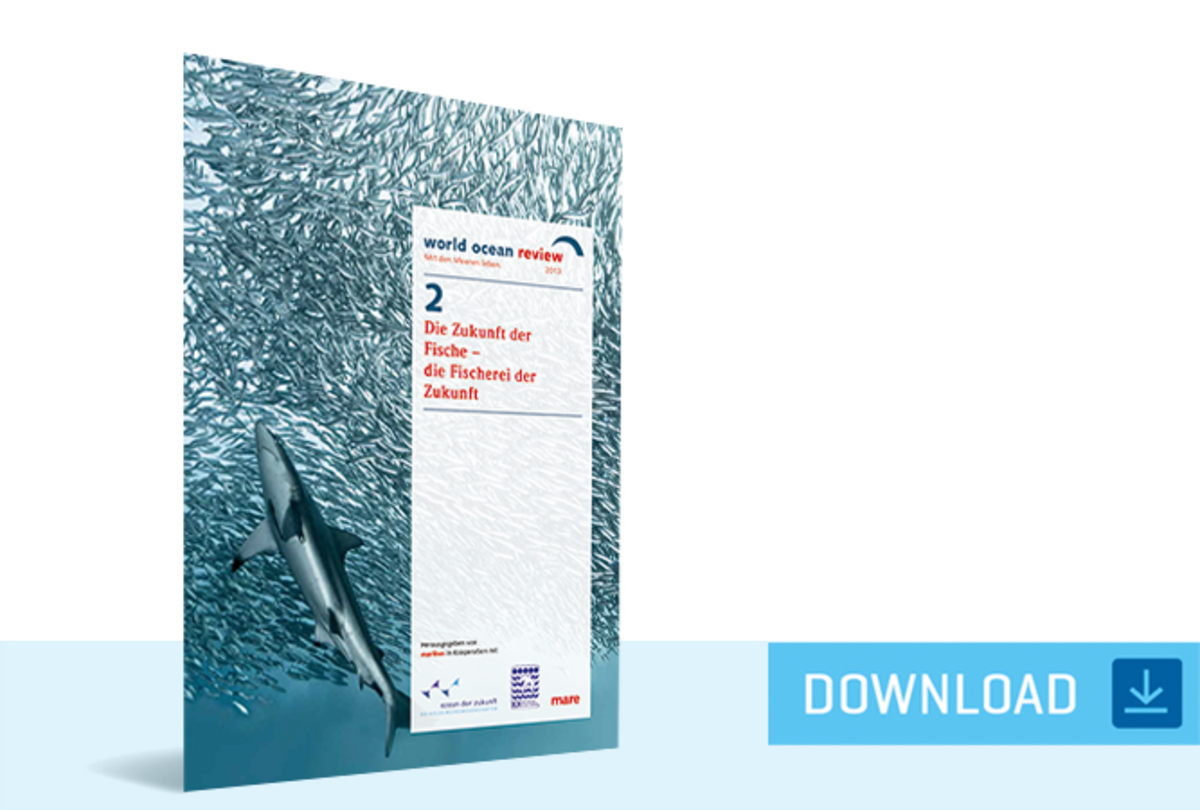GEOMAR Helmholtz Centre for Ocean Research Kiel
Communication and Media
Tel 0431 600-2807
Mail media(at)geomar.de
Fisheries Research
Fish - food and livelihood for the growing world population, industrial sector and a finite resource. Within a few decades, industrial fishing has spread from the classic fishing areas in the northern hemisphere to all seas. Many stocks of edible fish are considered overfished and have collapsed. However, the situation is not hopeless. Various countries have now shown that fish stocks can indeed be rebuilt through sustainable fisheries management. Researchers at GEOMAR are therefore looking at fish as a resource from different perspectives. Their common goal is to find new solutions for environmentally sound fisheries management.
What is overfishing?
Good fish - Which fish can you still eat with a clear conscience?
In Northern Europe alone, about 200 fish stocks are commercially exploited, but only a few of them meet the internationally binding criteria for sustainable fishing. GEOMAR has joined forces with the German consumer organizations and some NGOs to jointly publish an annual list of those marine fish that consumers can still eat with a reasonably good conscience.
Here, researchers from GEOMAR take over the scientific assessment of sustainable stock size and sustainable fishing pressure and verify compliance with these criteria. They are guided by the United Nations Convention on the Law of the Sea and its implementation in the EU's Common Fisheries Policy. According to this, fish stocks must be larger than a certain minimum size that can produce the maximum sustainable yield. In addition, fishing pressure on a stock must not exceed that which can produce maximum sustainable yield in the long term. Additional criteria, such as low-impact and low-bycatch fishing methods, are assessed by the other partners.
The fish and marine animals on the joint "Good Fish" list meet these criteria, in some cases with conditions that determine whether they remain on the list in the future. This is also intended to improve fisheries management. The list explicitly does not claim to be complete.
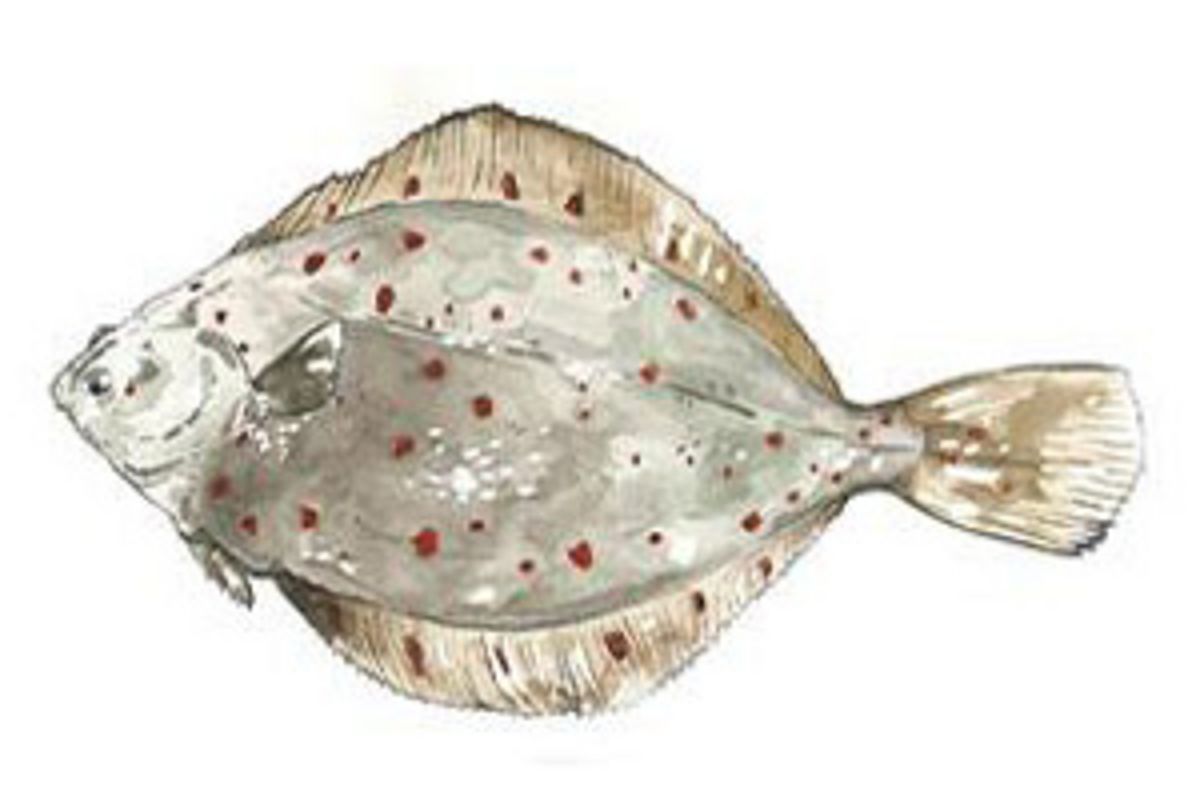
Baltic plaice
(Pleuronectes platessa)
Fishing area: Baltic Sea
Acceptable gears: pots and traps
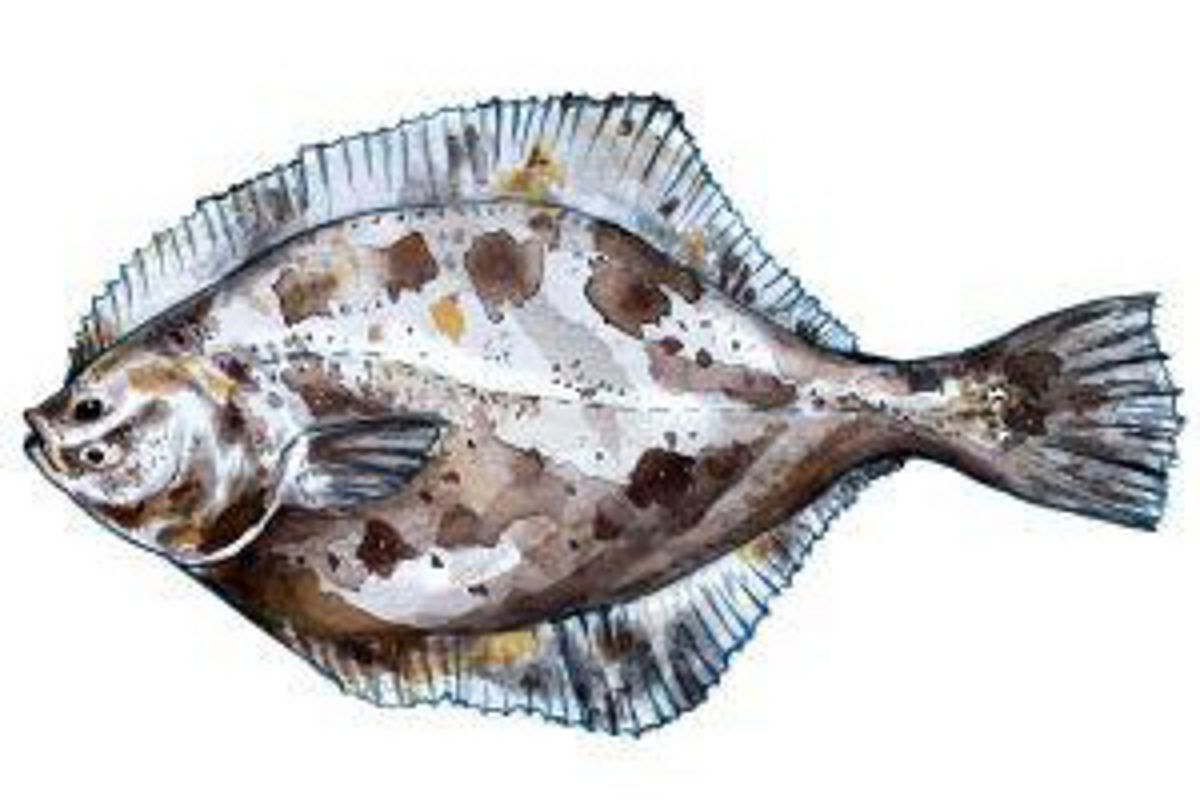
Baltic Sea flounder
(Platichthys flesus)
Fishing area: Western Baltic Sea
Acceptable gears: pots and traps
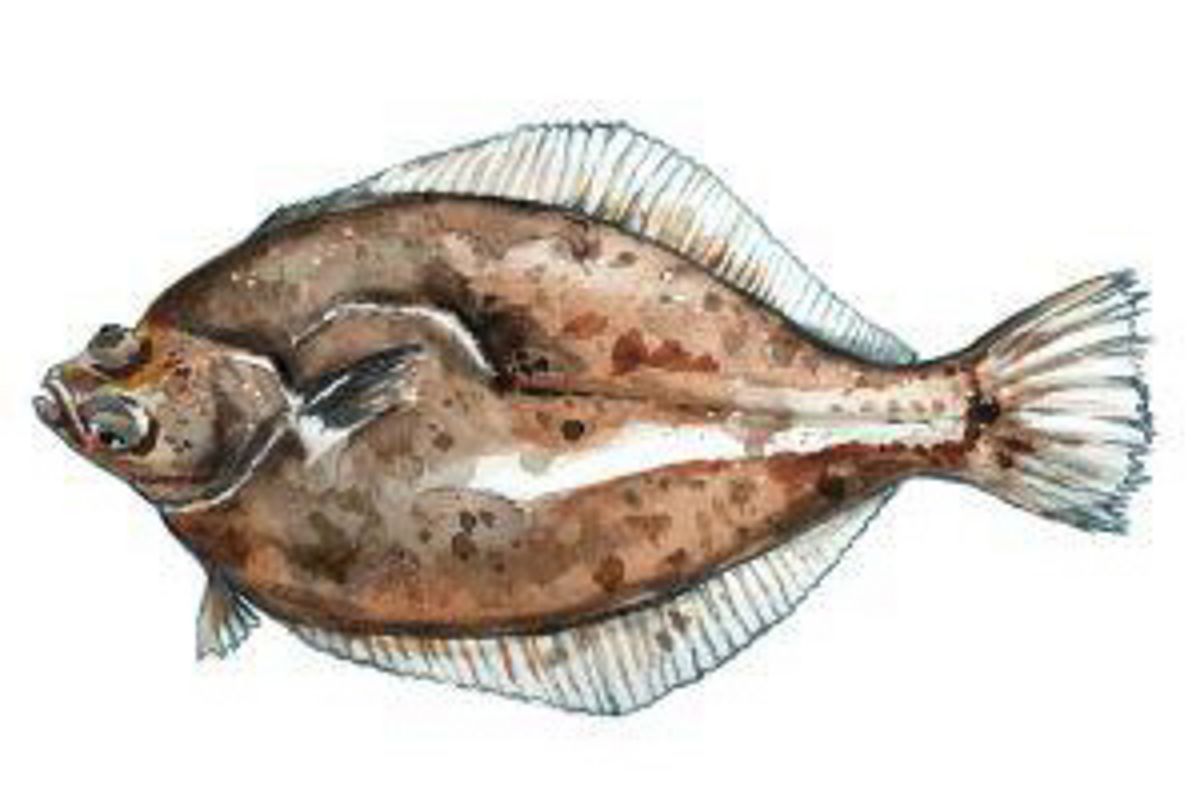
Baltic Sea dab
(Limanda limanda)
Fishing area: Baltic Sea
Acceptable gears: pots and traps
Extract from the list "good fish". Plaice, flounder and dab are flatfish that live mainly on the seabed. The stocks in the Baltic Sea are doing well and are fished sustainably if caught with traps and pots.
Adaptation of fish to environmental stress
The aim of the research group under the leadership of Dr Till Harter is to find out how the red blood cells of fish change as a result of climate change and rising temperatures. In particular, cod (Gadus morhua) are being investigated - initially in the Baltic Sea and later also in the Atlantic along the Norwegian coast as far as Svalbard and in the Arctic. The aim is to analyse whether the red blood cells change in a way that is beneficial to the fish and enables them to adapt to the new conditions. Among other things, the performance of the fish will be analysed. In the course of the project, comparisons can also be made between the different regions.
The new Emmy Noether group at GEOMAR is being funded by the German Research Foundation (DFG) from 2024-2030 with 1.5 million euros.
► More Infos from the research group (The Harter Lab)
Aquaculture is no solution
The farming of aquatic life in separated areas, known as aquaculture, is often seen as a supposed solution to the problem of intensive overfishing, but it too cannot satisfy the global hunger for fish and seafood and has already reached its ecological limits. An analysis of the growth rates of aquaculture production shows that the zenith has been passed and the numbers are declining.
Large-scale catching of small inexpensive fish as feed for expensive farmed fish also places a heavy burden on developing countries, African and South American coastal states in particular. Providing most of the world's food fish through aquaculture, with the existing geographic focus, could therefore have serious socioeconomic, nutritional, and food security consequences for the entire world.


